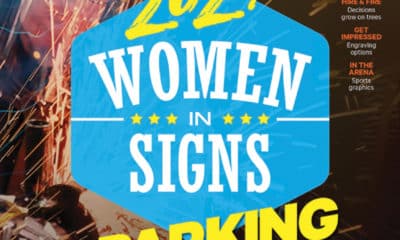California’s state legislature’s governmental organization committee voted 10-3, on April 30, to reject a de facto ban on digital billboards in the state. The Outdoor Advertising Assn. of America (OAAA), the Motion Picture Assn. and the California Travel Industry, all of whom opposed the legislation, cited a victory in their assertions that digital billboards didn’t pose safety hazards to drivers and were viewed favorably by viewers. California assemblyman Mike Feuer (D-Los Angeles) had sponsored the bill (AB109).
OAAA President and CEO Nancy Fletcher said, “Lawmakers heard all the arguments and voted against a draconian bill that would have hurt the economy, stifled innovation and denied communities powerful communications tools.”
Opponents in Los Angeles feared that digital billboards would multiply outdoor advertising’s intrusiveness. Media owners, however, see digital billboards’ revenue potential and flexible content management. The more laissez-faire direction that was chosen could become a model for other jurisdictions.
Tight restrictions, however, could have encouraged opponents to strengthen their appeals in other states regarding driver safety and visual blight. Reflecting this concern, official studies currently underway by the Federal Highway Administration (FHWA) and the American Assn. of State Highway Officials (AASHO) are evaluating digital billboards’ impact; the last phase of this study will be completed in 2010.
To protect public safety until the studies can be completed and evaluated, this bill would have temporarily prohibited the construction of any new digital display signs or the conversion of existing signs until January 1, 2012. This bill would not have affected nor required the removal of any digital displays already in place. Rather, the bill imposed a moratorium on adding any more such displays until such time as their impact on public safety can be properly evaluated.
The bill would also have prevented the California Dept. of Transportation from converting official highway message signs, including Amber Alerts, to permit digital advertising displays. The California State Outdoor Advertising Association (CSOAA) claimed the bill would have had adverse economic consequences, limited the effectiveness of public-safety messages and eliminated an important local revenue stream for local governments. CSOAA contended local communities already adequately regulate digital billboards, but that this bill imposed a complete ban on new digital billboards and would therefore "hurt California businesses large and small by limiting their options for most effectively promoting their products [and] eliminate needed jobs for workers who construct, convert, and maintain the billboards." CSOAA also claimed this bill would have limited the reach of public-safety and traffic messages by prohibiting the most modern and effective methods of communications, citing in particular the alleged negative impact on Amber Alerts.
Advertisement
Clear Chanel and Regency Outdoor also claimed the bill was unnecessary because outdoor advertising displays along the state highways are already adequately regulated by the Outdoor Advertising Act.


 Projects5 days ago
Projects5 days ago
 News6 days ago
News6 days ago
 How To3 days ago
How To3 days ago
 News2 weeks ago
News2 weeks ago
 Business Management2 weeks ago
Business Management2 weeks ago
 News2 weeks ago
News2 weeks ago
 Manager's To Do1 week ago
Manager's To Do1 week ago
 Dale Salamacha1 week ago
Dale Salamacha1 week ago









